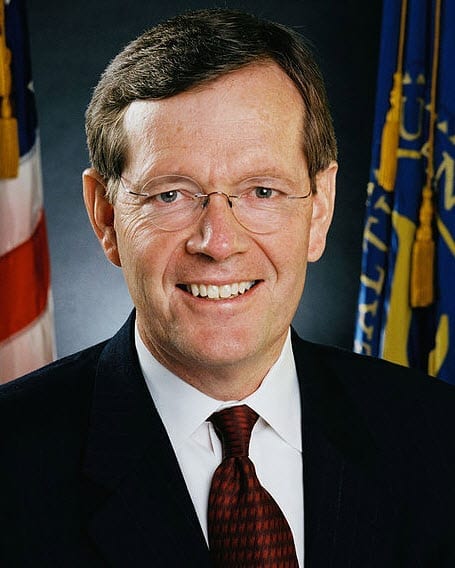 The Affordable Care Act was first introduced as an initiative to overhaul the nation’s failing health care system. While its aims may be altruistic, the health care law’s most recognized success lies in the ruffling of feathers amongst politicians. Steeped in controversy, many state lawmakers are overlooking a key provision of the act, which dictates that all states must host a self-sustaining health insurance exchange. Turning a blind eye to this provision may weaken a state’s authority in their own insurance industry, says Mike Leavitt, former Secretary of the Department of Health and Human Services.
The Affordable Care Act was first introduced as an initiative to overhaul the nation’s failing health care system. While its aims may be altruistic, the health care law’s most recognized success lies in the ruffling of feathers amongst politicians. Steeped in controversy, many state lawmakers are overlooking a key provision of the act, which dictates that all states must host a self-sustaining health insurance exchange. Turning a blind eye to this provision may weaken a state’s authority in their own insurance industry, says Mike Leavitt, former Secretary of the Department of Health and Human Services.
Leavitt issued a statement on Saturday, urging state governors to take the reins in creating these exchange programs. The former head of the HHS says that now is a pivotal time for state governments to show their initiative and ability to govern them. If they fail to build exchanges before the 2014 deadline, the federal government will take charge and establish one in the state, at which point the governance of the program will be dictated by federal control.
The exchange provision received initial acceptance upon the passage of the health care reform, but it has recently come under fire from legislators as the deadline for exchanges draws nearer. Despite the growing political fervor over the provision, Leavitt says that few are taking charge in establishing an exchange. Rather, lawmakers are seeking ways to fight or prolong the deadline. Such arbitrary pursuits are against the best interest of state residents, says Leavitt,
Leavitt points to Utah for a working example of the exchange program. In 2009, Utah became the first state to have such a program and now insures well over 3,000 people. While the exchange was created before the health care law was passed, Spencer Eccles, director of the Utah Governor’s Office of Economic Development, says that the program is so efficient that the federal government will not seek to change it. This means that the state is free to govern the program as it sees fit.
Proponents of small government have long held the reigns of the insurance industry in their respective states. Without taking action now, however, they may lose that well-loved control to the federal government.
